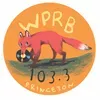Student-managed Live Radio Stations
Radio Stations
- CKDU 88.1 DalhousieCKDU 88.1 Dalhousie
- CKDU 88.1 Dalhousie (96 kbs)CKDU 88.1 Dalhousie (96 kbs)
- Radio Q (Campusradio Münster)Radio Q (Campusradio Münster)
- Radio Universidad (UASLP) - 88.5 FM - XHUSP-FM - UASLP (Universidad Autónoma de San Luis Potosí) - San Luis Potosí, SL

- Radio Universidad (UASLP) (San Luis Potosí) - 88.5 FM - XHUSP-FM - UASLP (Universidad Autónoma de San Luis Potosí) - San Luis Potosí, SLRadio Universidad (UASLP) (San Luis Potosí) - 88.5...
- WPRB 103.3 FM - Princeton, NJ

- WQKE 93.9 SUNY Plattsburgh

Choose a Genre
The Power of Student-Managed Radio Stations: Cultivating Skills, Community, and Creativity
In the world of broadcasting, student-managed radio stations stand out as powerful incubators of talent, offering students a unique opportunity to develop real-world skills while contributing to the cultural and social fabric of their campuses. These stations, often found in university or college settings, are entirely run by students, providing a platform for them to engage in hands-on learning and creative expression. From programming and broadcasting to advertising and music curation, student-managed stations offer a comprehensive, immersive experience that can shape the future careers of those involved.
Real-World Skills for Aspiring Broadcasters
One of the key benefits of student-managed radio stations is the invaluable real-world experience they provide. Students who take on roles such as program directors, music directors, on-air hosts, or station managers are able to gain practical experience in nearly every aspect of radio production. These positions allow students to develop a diverse skill set that is highly valued in the broadcasting industry.
By working in a collaborative environment, students enhance their leadership, teamwork, and communication abilities. These roles also require a great deal of creativity and problem-solving, which helps prepare students for the dynamic, fast-paced world of media. Whether it’s managing a live broadcast, curating music playlists, or negotiating advertising deals, the experiences gained through student-managed radio stations provide a solid foundation for future professional pursuits in broadcasting, marketing, journalism, and even technology.
Building Community and Campus Culture
Student-managed radio stations also play a crucial role in fostering a sense of community on college and university campuses. These stations often produce content that is specifically relevant to the student body, offering programming that reflects the interests, needs, and concerns of the campus community. Whether it’s covering local events, discussing student issues, or hosting shows that highlight student culture, these stations provide a platform for students to engage with each other and with the wider community.
By offering a space for students to share ideas, promote events, and voice their opinions, student-managed radio stations help to create a vibrant campus culture. These stations can also serve as a meeting point for students from diverse backgrounds, uniting them through a shared love for music, media, and dialogue. Through these stations, students can express their creative voices and contribute to the overall atmosphere of inclusivity and engagement on campus.
Supporting Emerging Artists and Music Discovery
Another key feature of student-managed radio stations is their ability to spotlight up-and-coming or lesser-known artists. Many student stations prioritize playing music from emerging talents, providing a platform for artists who may not have had the opportunity to be heard through mainstream outlets. This dedication to new and independent music enriches the campus’s cultural landscape while supporting the broader music industry.
For students involved in curating playlists and producing shows, this focus on emerging artists provides valuable exposure to a wide range of genres and trends in music. It also encourages listeners to discover new sounds, artists, and movements that might not be on their radar otherwise. This role of discovery and innovation is crucial for keeping the music scene dynamic, and student-managed stations are often at the forefront of promoting fresh voices in the industry.
Offering a Unique Perspective on Current Events
Student-managed radio stations also provide a distinct perspective on current events and cultural issues. Unlike traditional media outlets, which are often constrained by corporate interests or political affiliations, student-run stations offer an unfiltered view of the world, shaped by the personal experiences and viewpoints of the students involved.
These stations often tackle topics that are important to the student body, including campus life, social justice, mental health, and global affairs. By bringing student perspectives into the conversation, these stations help to create a platform for critical thinking and dialogue on issues that matter to the community. This space can also give voice to marginalized or underrepresented groups, allowing students to address topics that might not otherwise be covered by mainstream media.
Preparing Students for Future Careers
For students aspiring to enter the world of broadcasting, media, or communications, student-managed radio stations offer an invaluable hands-on experience that can significantly boost their resumes. By learning the ins and outs of running a radio station—from technical production to content creation to managing station logistics—students gain real-world skills that are essential for success in the media industry. These experiences also offer networking opportunities, allowing students to make connections with professionals in the field and gain insights into career paths they might want to pursue.
In addition to providing practical knowledge, student-run radio stations also encourage creativity and entrepreneurship, as students are often responsible for managing every aspect of the station. From fundraising and marketing to producing shows and organizing events, students are able to build a wide range of transferable skills that will serve them well in any career path they choose.
A Lasting Impact on Campus and Beyond
Ultimately, student-managed radio stations play an important role in fostering a vibrant campus culture, supporting emerging talent, and preparing students for their futures. These stations offer a unique combination of hands-on learning, community-building, and creative expression that sets them apart from other campus organizations. Through their involvement in these stations, students not only gain essential skills and experience but also contribute to a positive and dynamic atmosphere that enriches the college experience for everyone involved.
By giving students the tools they need to succeed in broadcasting and media, while also offering a platform for creative expression and community engagement, student-managed radio stations are helping to shape the next generation of media professionals, artists, and thought leaders.
In the world of broadcasting, student-managed radio stations stand out as powerful incubators of talent, offering students a unique opportunity to develop real-world skills while contributing to the cultural and social fabric of their campuses. These stations, often found in university or college settings, are entirely run by students, providing a platform for them to engage in hands-on learning and creative expression. From programming and broadcasting to advertising and music curation, student-managed stations offer a comprehensive, immersive experience that can shape the future careers of those involved.
Real-World Skills for Aspiring Broadcasters
One of the key benefits of student-managed radio stations is the invaluable real-world experience they provide. Students who take on roles such as program directors, music directors, on-air hosts, or station managers are able to gain practical experience in nearly every aspect of radio production. These positions allow students to develop a diverse skill set that is highly valued in the broadcasting industry.
By working in a collaborative environment, students enhance their leadership, teamwork, and communication abilities. These roles also require a great deal of creativity and problem-solving, which helps prepare students for the dynamic, fast-paced world of media. Whether it’s managing a live broadcast, curating music playlists, or negotiating advertising deals, the experiences gained through student-managed radio stations provide a solid foundation for future professional pursuits in broadcasting, marketing, journalism, and even technology.
Building Community and Campus Culture
Student-managed radio stations also play a crucial role in fostering a sense of community on college and university campuses. These stations often produce content that is specifically relevant to the student body, offering programming that reflects the interests, needs, and concerns of the campus community. Whether it’s covering local events, discussing student issues, or hosting shows that highlight student culture, these stations provide a platform for students to engage with each other and with the wider community.
By offering a space for students to share ideas, promote events, and voice their opinions, student-managed radio stations help to create a vibrant campus culture. These stations can also serve as a meeting point for students from diverse backgrounds, uniting them through a shared love for music, media, and dialogue. Through these stations, students can express their creative voices and contribute to the overall atmosphere of inclusivity and engagement on campus.
Supporting Emerging Artists and Music Discovery
Another key feature of student-managed radio stations is their ability to spotlight up-and-coming or lesser-known artists. Many student stations prioritize playing music from emerging talents, providing a platform for artists who may not have had the opportunity to be heard through mainstream outlets. This dedication to new and independent music enriches the campus’s cultural landscape while supporting the broader music industry.
For students involved in curating playlists and producing shows, this focus on emerging artists provides valuable exposure to a wide range of genres and trends in music. It also encourages listeners to discover new sounds, artists, and movements that might not be on their radar otherwise. This role of discovery and innovation is crucial for keeping the music scene dynamic, and student-managed stations are often at the forefront of promoting fresh voices in the industry.
Offering a Unique Perspective on Current Events
Student-managed radio stations also provide a distinct perspective on current events and cultural issues. Unlike traditional media outlets, which are often constrained by corporate interests or political affiliations, student-run stations offer an unfiltered view of the world, shaped by the personal experiences and viewpoints of the students involved.
These stations often tackle topics that are important to the student body, including campus life, social justice, mental health, and global affairs. By bringing student perspectives into the conversation, these stations help to create a platform for critical thinking and dialogue on issues that matter to the community. This space can also give voice to marginalized or underrepresented groups, allowing students to address topics that might not otherwise be covered by mainstream media.
Preparing Students for Future Careers
For students aspiring to enter the world of broadcasting, media, or communications, student-managed radio stations offer an invaluable hands-on experience that can significantly boost their resumes. By learning the ins and outs of running a radio station—from technical production to content creation to managing station logistics—students gain real-world skills that are essential for success in the media industry. These experiences also offer networking opportunities, allowing students to make connections with professionals in the field and gain insights into career paths they might want to pursue.
In addition to providing practical knowledge, student-run radio stations also encourage creativity and entrepreneurship, as students are often responsible for managing every aspect of the station. From fundraising and marketing to producing shows and organizing events, students are able to build a wide range of transferable skills that will serve them well in any career path they choose.
A Lasting Impact on Campus and Beyond
Ultimately, student-managed radio stations play an important role in fostering a vibrant campus culture, supporting emerging talent, and preparing students for their futures. These stations offer a unique combination of hands-on learning, community-building, and creative expression that sets them apart from other campus organizations. Through their involvement in these stations, students not only gain essential skills and experience but also contribute to a positive and dynamic atmosphere that enriches the college experience for everyone involved.
By giving students the tools they need to succeed in broadcasting and media, while also offering a platform for creative expression and community engagement, student-managed radio stations are helping to shape the next generation of media professionals, artists, and thought leaders.